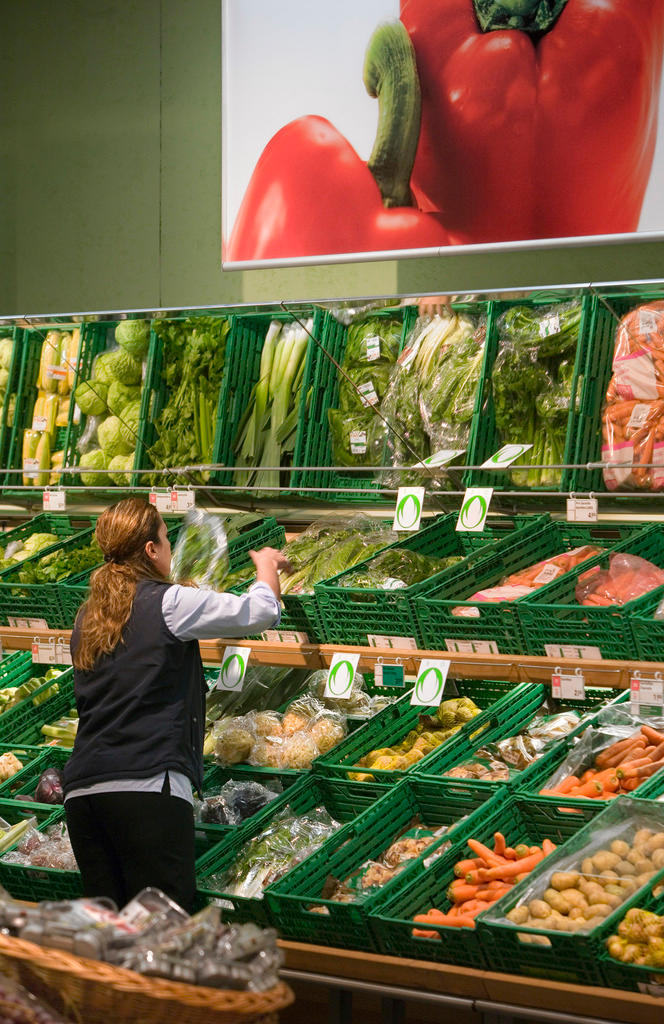
Demand for organic food grows strongly in Switzerland

One in ten fresh food items sold in Switzerland last year was organic, according to the Federal Office for Agriculture.
The market share of organic products rose from 4.6% in 2007 to 9% in 2017, while the share of fresh organic food sold in Switzerland rose from just under 6% to 11.5% over the same period, the agriculture office reported on Tuesday.
One in four eggs sold in Switzerland last year was organic (26.6% of all eggs). Similar percentages were recorded for organic vegetables (23.1%) and organic fresh bread (22.1%).
In sales, the Swiss organic food market grew by 7.6% per year over the past decade. The total value of organic food sold in Switzerland rose from CHF1.3 billion in 2007 to CHF2.7 billion in 2017. Annual per-capita expenditure rose from CHF171 to CHF320.
+ Read more about an anti-pesticide farm initiative
The biggest organic distributors are the supermarket giants Migros (33% of the market) and Coop (44%). Specialist shops have lost market share (5% in total) over this period.
A total of 279 new producers managed to obtain an organic certification label in 2017, bringing the number of organic farms in Switzerland and Liechtenstein to 6,906. Of these 6,423 fall under the Bio Suisse certification scheme.
While sales of organic produce may be on the rise in Switzerland, high prices remain an obstacle to faster growth of the sector. Switzerland’s price watchdog Stefan Meierhans is aware of the issue.
“Everything was organic decades ago. Now it’s always a special label and you have to pay a lot of money, and sometimes I think it’s very much overpriced. But as long as there is enough demand, that’s the rules of the market,” he told swissinfo in a recent interview.

In compliance with the JTI standards
More: SWI swissinfo.ch certified by the Journalism Trust Initiative





























You can find an overview of ongoing debates with our journalists here . Please join us!
If you want to start a conversation about a topic raised in this article or want to report factual errors, email us at english@swissinfo.ch.